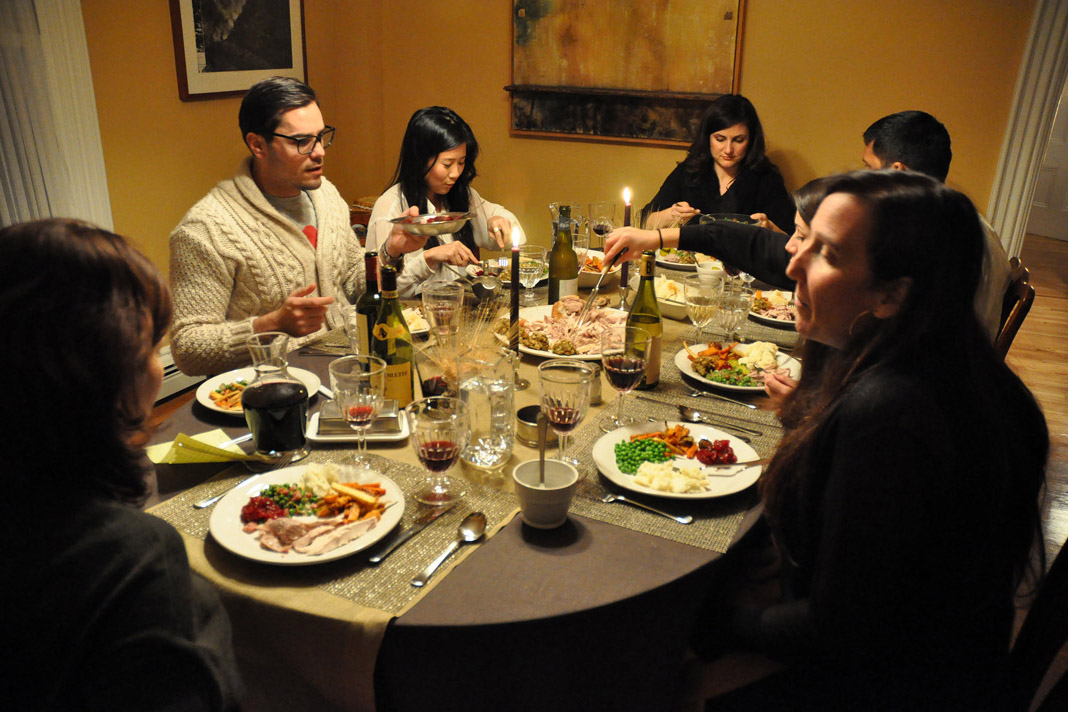Talking politics with family and friends at the holidays is supposed to be a big no-no. But sometimes you can’t help yourself. So if you’re going to walk down that dangerous road, we at least wanted to provide a few pointers. This week, Kara Holsopple chatted with psychologist Mary Beth Mannarino about how you can take on issues like climate change at Thanksgiving—but avoid a family feud. Here are some highlights from the interview.
LISTEN: How to Talk Politics at Thanksgiving
On how to deal with hot button issues like climate change at family gatherings
“Thanksgiving is a time when you’re supposed to gather together and get along. I wouldn’t recommend doing something that’s going to be very disruptive. But I also think that it’s fair that each person should be able to express their opinions. What we find when we talk about climate change or other environmental issues is if you reach out and ask the other person about their beliefs and show a genuine interest in it and why they feel so strongly about it, then you’re meeting them where they are. Then you can say something like—I’ve done a lot of thinking about this as well and here are some things I’ve done to educate myself about it. So meet them where they are, and then express yourself in a way that respects that they might be different.”
What to do if things get heated
“My recommendation is always to take the high road and to say that it is a potentially volatile topic and that you’d be happy to talk about it another time if somebody really wants to sit down and hammer out some of the differences that you have. What we know from research about this is that nobody changes their mind in response to preaching or giving just factual information.”
“I can remember being at Thanksgiving during the last two presidential elections. And most of my family lives in the South, and some of them have very different ideas than I do. And I can remember driving down to Kentucky where some of them live, having conversations in my head ahead of time. I think discomfort is a part of in-person conversation and dialogue that we’ve gotten away from. So much of our communication is technologically driven, where you put something out there and you don’t have to deal with the person in front of you. And so we haven’t learned to deal with talking with someone whose ideas make you feel uncomfortable. So I would embrace the discomfort and see it as a sign that you’re taking a brave step in talking about it. And again, put yourself in the position of an explorer to try to understand the other person’s perspective, because that will make it more likely that they’ll respond to you in kind. And you’ll be able to have an honest conversation.”
On why environmental issues are so charged
“There’s a fear of being judged. And there’s also the fear of change. We have been marketed to, to aspire to a certain kind of life. And when we’re getting nearer to that or actually in that kind of life, to face the reality that if we’re really going to address some of these problems, we’re each going to have to change how we live is a scary thing. And another issue in our country is the real emphasis on autonomy and independence. So that conflicts with a more communal approach that would require each of us to look around and say, What can I do to make the communal better?”
###
Mary Beth Mannarino is a professor of psychology at Chatham University in Pittsburgh. Check out her blog here. This story was originally published on November 20, 2015.

